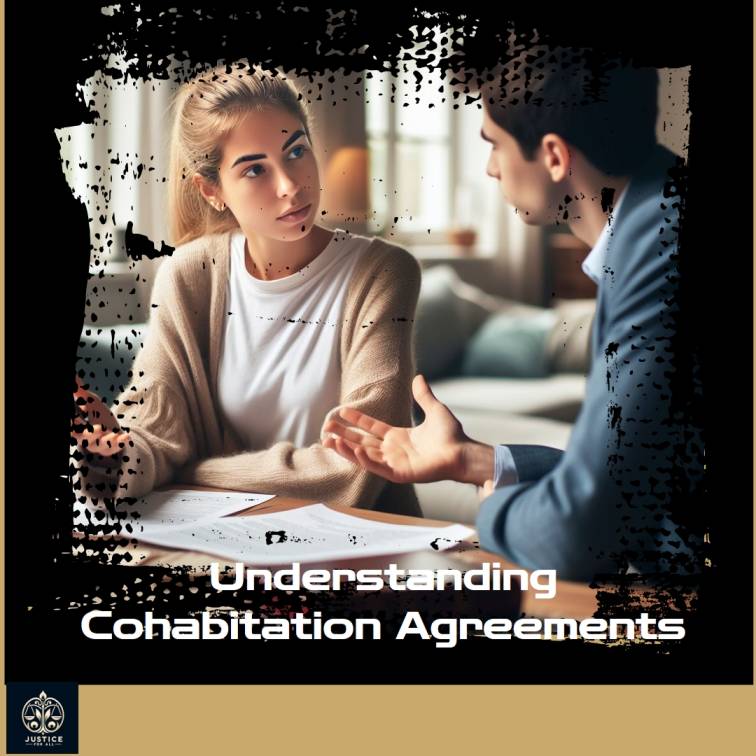In this article we have explained Importance Of Updating Will And Trust Documents
Introduction: The Foundation of Estate Planning
Estate planning is a crucial aspect of financial planning that often goes overlooked. In India, creating a will or setting up a trust is a significant step towards ensuring that your assets are distributed according to your wishes after your passing. However, creating these documents is not a one-time task. Life is full of changes, and as such, it is essential to update your will and trust documents to reflect your current wishes and circumstances. This article explores the importance of this process and offers insights into why keeping your estate planning documents up to date is critical under Indian law.
The Importance Of Updating Will And Trust Documents Under Indian Law
What is a Will?
A will is a legal document that outlines how you want your assets to be distributed after your death. It can include everything from financial assets and property to personal belongings. In India, wills are governed by various laws, including the Indian Succession Act, 1925, which applies to people of all religions except Muslims, who have their own personal laws.
What is a Trust?
A trust, on the other hand, is a legal arrangement where you transfer the ownership of your assets to a trust for the benefit of one or more beneficiaries. Trusts can be set up for various purposes, such as managing assets for minors or creating a charitable foundation. The Indian Trusts Act, 1882, outlines the legal framework for trusts in India.
Why Updating Your Will and Trust Is Essential
Life Changes
Life is unpredictable, and significant life events such as marriage, divorce, the birth of children, or the death of a beneficiary can drastically change your relationship dynamics and financial situation. Updating your will and trust ensures that these documents accurately reflect your current wishes and the realities of your life.
Asset Changes
Over time, your asset portfolio is likely to change. You may acquire new assets, sell off old ones, or see changes in the value of your investments. Regular updates to your will and trust documents ensure that all your assets are accounted for and distributed according to your current wishes.
Legal and Tax Implications
Laws and tax regulations change over time. Updating your estate planning documents can help you take advantage of favorable legal and tax changes, as well as ensure compliance with current laws, minimizing the tax burden on your heirs and avoiding legal complications.
Best Practices for Updating Your Will and Trust
Regular Reviews
It’s advisable to review your will and trust documents regularly, at least once every two to five years, and after any major life event. This practice ensures that your estate plan remains aligned with your current wishes and circumstances.
Seek Professional Help
Updating legal documents can be complex, especially when considering the nuances of Indian law. Seeking the assistance of a legal professional who specializes in estate planning can provide guidance and ensure that your documents are legally sound and reflect your intentions accurately.
Communicate with Your Loved Ones
Transparency with your family and beneficiaries about your estate plan can prevent misunderstandings and disputes after your passing. It’s beneficial to discuss your wishes and any updates to your documents with your loved ones.
You can read :- Difference between Will and Trust
Conclusion: A Lifelong Process
Updating your will and trust documents is not just a legal necessity; it’s a way of ensuring that your wishes are respected and your loved ones are taken care of in your absence. Regular reviews and updates, with the help of legal professionals and open communication with your family, will make this ongoing process smoother and more effective. Remember, estate planning is a dynamic process that requires attention and adjustments as your life evolves.
FAQ on Updating Will and Trust Documents Under Indian Law
1. Why is it important to update my will?
Updating your will ensures that your assets are distributed according to your most current wishes, reflecting changes in your life circumstances, assets, and relationships.
2. How often should I update my will and trust documents?
It’s advisable to review and potentially update your will and trust documents every two to five years or after significant life events such as marriage, divorce, the birth of a child, or the acquisition of substantial assets.
3. What happens if I don’t update my will?
If you don’t update your will, your assets may not be distributed as you currently wish, potentially leading to disputes among your heirs or beneficiaries.
4. Can I update my will by writing a new one?
Yes, you can update your will by writing a new one. The new will should declare that it revokes all previous wills and codicils, ensuring it is the one that will be followed.
5. Is a handwritten update to my will valid under Indian law?
A handwritten update, or holographic will, can be valid under Indian law if it meets all legal requirements, including being fully handwritten, dated, and signed by the testator. However, consulting a legal professional is advisable for clarity and compliance.
6. What should I do with my old will after creating a new one?
After creating a new will, it’s wise to destroy the old one to avoid any confusion or legal disputes after your passing.
7. Do I need a lawyer to update my will?
While you can technically update your will without a lawyer, consulting with a legal professional ensures that the document complies with current laws and accurately reflects your wishes.
8. What major life events should prompt me to update my will?
Major life events include marriage, divorce, the birth or adoption of a child, the death of a beneficiary, significant changes in financial status, and acquisition or disposal of major assets.
9. Can I add a codicil to my will instead of writing a new one?
Yes, you can add a codicil to make minor changes to your will. However, for substantial changes, drafting a new will is often clearer and more straightforward.
10. How do I update a trust document?
Updating a trust document typically involves executing an amendment to the trust, which must be done in accordance with legal requirements. Consulting a legal professional is recommended.
11. What are the consequences of not updating a trust document?
Not updating a trust can lead to the mismanagement or improper distribution of assets, failing to reflect your current wishes or financial situation.
12. Can I change the trustee in my trust?
Yes, you can change the trustee by following the procedure outlined in your trust document or under relevant laws, often involving executing a formal amendment.
13. How does marriage affect my will?
Marriage can invalidate a previous will under Indian law, making it essential to create a new will to reflect your changed marital status and intentions.
14. What happens to my will if I get divorced?
Divorce does not automatically invalidate your will, but it’s crucial to update it to reflect your current wishes regarding your ex-spouse and any children.
15. Do changes in assets automatically update in my will or trust?
No, changes in assets do not automatically update in your will or trust. You need to manually update these documents to reflect changes in your assets.
16. Can I disinherit someone in my will?
Under Indian law, you can generally disinherit someone in your will, except in cases where certain family members are entitled to maintenance under personal laws.
17. What is the difference between a revocable and irrevocable trust in terms of updates?
A revocable trust can be amended or revoked during the settlor’s lifetime, while an irrevocable trust generally cannot be changed once established.
18. How do I ensure my updated will is legally valid?
To ensure your updated will is legally valid, follow legal requirements such as having it written, signed, and witnessed as per the Indian Succession Act, and consider consulting a legal professional.
19. What if my beneficiaries’ circumstances change?
If a beneficiary’s circumstances change (e.g., marriage, divorce, death), you should update your will or trust to reflect how you want your assets distributed.
20. Can updating my will affect my taxes?
While updating your will itself does not directly affect taxes, the way you structure your estate can have tax implications. Consulting with a financial advisor or tax professional is recommended.
21. How can I avoid disputes over my will?
Clear, up-to-date, and legally compliant wills, along with open communication with beneficiaries, can help minimize disputes over your estate.
22. What is a testamentary trust, and should it be updated?
A testamentary trust is created by a will to manage assets for beneficiaries after the testator’s death. It should be updated as part of your will to reflect current wishes.
23. Can I manage digital assets in my will?
Yes, you can include digital assets in your will, specifying how they should be handled, accessed, or distributed after your death.
24. What happens if a named executor or trustee dies?
If an executor or trustee dies, update your will or trust to appoint a new one, ensuring the management and distribution of your estate as planned.
25. Can I specify funeral arrangements in my will?
Yes, you can specify funeral arrangements in your will, although it’s also advisable to communicate these wishes to your family or executor directly.
26. What if I move to another state or country?
Legal requirements for wills and trusts can vary by jurisdiction. If you move, review and potentially update your documents to comply with local laws.
27. How do I handle assets in multiple countries?
Consider creating separate wills for each jurisdiction or consulting with legal professionals experienced in international estate planning to manage assets across borders efficiently.
28. What is a living will, and does it need updates?
A living will, or advance healthcare directive, specifies your wishes regarding medical treatment if you’re unable to communicate. Like other estate documents, it should be reviewed and updated as your health and wishes evolve.
29. Can I use my will to establish guardianship for my children?
Yes, you can use your will to nominate a guardian for your minor children, ensuring they are cared for according to your wishes if you pass away.
30. Where should I store my updated will and trust documents?
Store your updated documents in a secure, accessible place and inform your executor or trustee of their location to ensure they can be easily found after your passing.
















